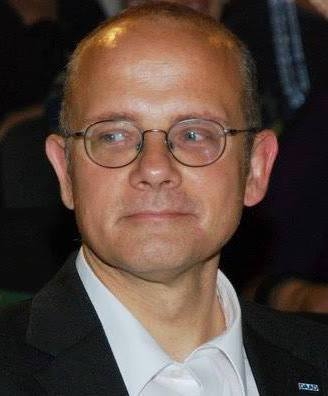Russophobia card in their campaigns. In addressing Russia, Senators John
McCain and Hillary Clinton have resorted to insulting President Vladimir
Putin as a KGB spy who has no soul. Russophobia is truly back into
fashion, as Senator Joseph Biden admitted last week in a comment
published in The Wall Street Journal.
U.S. politicians can hardly claim that they know a lot about Russia.
Unable to even pronounce names of Russia's leading politicians, many in
the U.S. establishment are nevertheless convinced of Russia's inherent
propensity to violate its own citizens' rights and bully other nations.
The attacks on Putin and President-elect Dmitry Medvedev are widely
supported in mainstream U.S. media. This demagoguery also extends to
scholarly publications, such as "The New Cold War" by Edward Lucas, who
claims that "Russia's vengeful, xenophobic and ruthless rulers have
turned the sick man of Europe into a menacing bully." Just published,
the book is getting a lot of publicity and is treated as a serious
treatise by influential organizations, such as the Council on Foreign
Relations.
Despite the anti-Russia rhetoric, many U.S. politicians feel that Russia
doesn't matter in the global arena. Instead, they are preoccupied with
other international issues, such as Iraq and Afghanistan. But Russia
should matter, particularly in a world of new security threats and
growing energy competition. The attitude of ignorance and
self-righteousness toward Russia tells us volumes about the U.S.
unpreparedness for the central challenges of the 21st century.
European politicians that their grand plans to control the world's most
precious resources and geostrategic sites may not succeed if Russia's
economic and political recovery continues.
One Russophobic group, exemplified by McCain, includes military hawks or
advocates of U.S. hegemony who fought the Cold War not to contain the
Soviet enemy but to destroy it by all means available. The second group
is made up of "liberal hawks" who have gotten comfortable with the
weakened and submissive Russia of the 1990s. They have an agenda of
promoting U.S.-style democracy and market economy. The fact that the
Soviet threat no longer exists has only strengthened their sense of
superiority.
Finally there are lobbyists representing East European nationalists who
have worked in concert with ruling elites of East and Central European
nations to oppose Russia's state consolidation of power as well as
promote NATO expansion, deployment of elements of a U.S. missile-defense
system in Poland and Czech Republic, and energy pipelines circumventing
Russia. These groups have diverse but compatible objectives of isolating
Russia from European and U.S. institutions. Because of a lack of
commitment to a strong relationship with Russia in the White House, a
largely uninformed public and the absence of a Russian lobby within the
United States, the influence that these groups exert on policymaking has
been notable.
Russophobia is not in U.S. national interests and is not supported by
the American public. Various polls demonstrate that Americans do not
agree with the assessment that Russia is a threat to the United States'
values and interests. A recent BBC World Service poll revealed, for
example, that 45 percent of Americans have a mainly positive attitude
regarding Russia's influence in the world, compared with 36 percent who
have a mainly negative attitude.
Yet Russophobia-driven groups have generally succeeded in feeding the
media an image of Russia as an increasingly dangerous regime. Thousands
of reports in the mainstream U.S. media implicate the Kremlin and Putin
personally in murdering opposition journalists and defected spies. Only
a handful of reports in less prominent outlets question such
interpretations.
Although it matters greatly which candidate will enter the White House
in November, the more important issue is whether there will be a
fundamental psychological adjustment in Washington away from Russophobia.
To be sure, the healing of the U.S. Russophobic mindframe is going to
require a lot of time. Winston Churchill once commented that U.S.
politicians "always do the right thing in the end. They just like to
exhaust all the alternatives first." If this indeed is the case, we will
not see a framework for meaningful cooperation with Russia any time soon.
Andrei Tsygankov is associate professor of international relations at
San Francisco State University.




